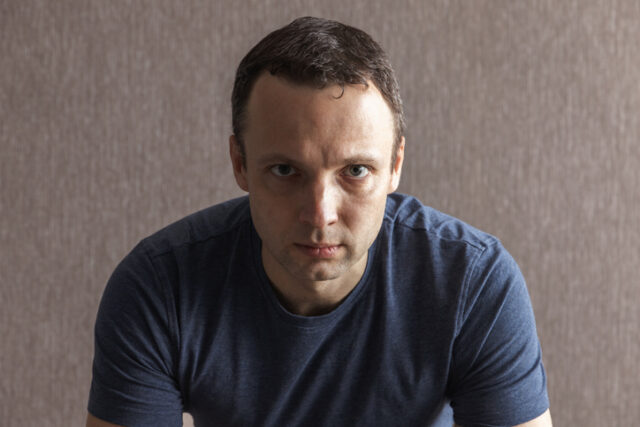Experiencing emotional neglect growing up isn’t something that’s always obvious to you or the people who know you as an adult.

Sometimes it’s just the feeling that no one really tuned in to what you were going through. You might have had food, clothes, and a roof over your head, but still felt emotionally invisible to the people who raised you, even if that wasn’t their intention. The effects can be subtle but long-lasting, showing up in how you handle feelings, relationships, and even your sense of self. If any of these sound familiar, it might be worth considering the experiences you had in childhood.
1. You often feel like your emotions are too much.

If you grew up without emotional support, you might have learned to keep things to yourself to avoid being a burden. Crying, expressing anger, or showing excitement may have been met with silence or irritation, so you adapted by shutting it all down. It probably felt safer not to be noticed at all.
Now you might find it hard to express how you’re feeling without immediately judging yourself. Even saying you’re upset might come with a side of guilt or embarrassment. It’s not that you don’t feel things deeply. You just don’t always feel like you’re allowed to show it.
2. You struggle to identify what you’re feeling.

When emotional neglect is part of your early life, you often miss out on the chance to learn the language of feelings. You weren’t guided to name or process emotions, so instead of recognising sadness or frustration, you just feel off or overwhelmed and can’t quite explain why.
As an adult, this can make it hard to connect with other people, or even to take care of your own needs. You might feel emotionally flat or disconnected without knowing what would help because no one really showed you how to check in with yourself in the first place.
3. You dismiss your own needs.

Growing up emotionally neglected can leave you with a strong instinct to put everyone else first. If your needs were ignored or seen as inconvenient, you probably learned not to ask for much. As time goes on, this can turn into a deep belief that what you need doesn’t really matter.
Even now, you might find yourself downplaying discomfort, pushing through exhaustion, or putting your feelings on the back burner. It’s not necessarily because you’re selfless; it’s because you’re used to not expecting care or support, even from yourself.
4. You feel emotionally disconnected in relationships.

You might get along well with people, but still feel like there’s a wall between you and real emotional intimacy. If no one ever modelled emotional closeness or taught you how to be vulnerable, then even loving relationships can feel distant or confusing. You may want connection—you just don’t always know how to reach for it or what it’s supposed to look like. Sometimes, you might even pull away without realising, especially when things start to feel too emotionally intense.
5. You feel guilty for relaxing or doing nothing.

If your emotional world wasn’t validated growing up, you might have compensated by becoming ultra-independent or hyper-functional. Being busy probably felt like the only way to feel useful or okay because resting wasn’t modelled as a form of self-worth.
Now, slowing down might make you feel anxious, like you’re wasting time or being lazy. You might even need to “earn” your rest with exhaustion. That relentless drive isn’t necessarily ambition. Sometimes it’s a trauma response from being emotionally unsupported.
6. You worry that people will leave if you’re honest.

If expressing your true thoughts or feelings was met with rejection, disinterest, or criticism, you probably stopped being honest about what was really going on inside. It just didn’t feel safe. So you became a version of yourself that felt more acceptable, and more digestible.
As an adult, this can lead to people-pleasing or avoiding conflict at all costs. You might second-guess yourself constantly or rehearse conversations in your head to make sure you won’t upset anyone. That doesn’t make you fake. In reality, you’re protecting yourself from the same kind of emotional neglect all over again.
7. You’re deeply uncomfortable with vulnerability.

When emotional needs weren’t acknowledged growing up, being open about how you feel can feel unfamiliar and even risky. Vulnerability might seem weak or embarrassing, simply because you never saw it being treated with kindness or care.
This can lead to keeping things surface-level with people, even when you care about them. You might avoid asking for help or hate admitting when you’re struggling. It’s not that you don’t feel. It’s just that you were never taught what to do with those feelings once they arrived.
8. You’ve got a constant sense of “not enough.”

When you weren’t emotionally seen or validated as a child, you might’ve internalised the belief that something was wrong with you. Maybe you thought you had to earn attention or prove your worth, and even now, that sense of inadequacy follows you around.
You could be achieving loads and still feel empty. Praise might not land. You might even feel undeserving of good things when they come your way. That core belief of not being enough doesn’t usually come from nowhere. It often starts with being emotionally overlooked.
9. You find it easier to support other people than yourself.

You’re probably really good at helping other people through their emotional mess—listening, offering advice, being the steady one. That’s often a skill picked up from being the emotionally responsible one in a home where your own emotions were never really tended to.
But when it comes to your own needs, you might struggle to know what to do. You could end up minimising your own pain while pouring all your energy into other people. Supporting people can become your comfort zone, even while you’re neglecting the same support for yourself.
10. You’re weirdly good at pretending everything’s fine.

Children who grow up emotionally neglected often become masters of self-containment. If no one asked how you were, or if being vulnerable led to nothing changing, you learned to hide it. You became low-maintenance, invisible, or overly independent — just to survive emotionally.
Even now, you might say “I’m fine” when you’re absolutely not. You might function through breakups, grief, and burnout like nothing’s wrong. But that resilience sometimes comes at the cost of real emotional healing because you’re still running the same program of pretending it’s all okay.
11. You’re uncomfortable receiving affection or praise.

When warmth and validation weren’t consistent growing up, it can feel awkward to receive them later in life. Compliments might make you cringe. Hugs or kind words might feel overwhelming or suspicious, like they’re about to come with a catch. You’re not cold or unfeeling; it just doesn’t come naturally to take in that kind of positive attention. And sometimes, if you’ve never been shown healthy affection, it’s hard to believe it when it’s real, even when part of you craves it.
12. You don’t trust your gut.

Emotional neglect can mess with your inner compass. If your feelings were ignored or dismissed regularly, you likely learned to override them in order to keep the peace or avoid disappointment. Eventually, that can ruin your ability to trust yourself.
Now, when you’re making decisions or trying to read a situation, you might second-guess yourself constantly. You might look to other people to validate what you feel because you were never taught that your emotions were a reliable source of guidance in the first place.
13. You minimise your own experiences.

One of the most common signs of childhood emotional neglect is brushing off your own pain. You might tell yourself it wasn’t that bad, or other people had it worse, or that you’re being overly sensitive for even bringing it up. The constant minimising makes it harder to connect the dots between past experiences and current struggles. The thing is, just because something wasn’t dramatic doesn’t mean it didn’t affect you. Neglect often works quietly, but the impact runs deep.
14. You’re terrified of being a burden.

If you grew up with the sense that your emotions or presence were inconvenient, you might now feel like you’re “too much” for people. Asking for help, expressing sadness, or even needing company might all feel like things that would drive other people away.
This can lead to being overly self-reliant, even when you’re really struggling. You might suffer in silence just to avoid the shame of needing someone. The truth is, though, everyone needs care, and you deserved that kind of support from the start.
15. You often feel emotionally numb.

To cope with emotional neglect, some people disconnect entirely from their inner world. It’s a defence mechanism. If no one was there to help you handle overwhelming feelings, your mind may have chosen to shut them down altogether.
That might’ve kept you safe then, but now it can leave you feeling detached from joy, sadness, or anything in between. You might go through life in a bit of a fog, not fully sure how you’re feeling or why. It’s not apathy; it’s protection that’s overstayed its welcome.
16. You feel unseen, even in close relationships.

One of the most lingering effects of emotional neglect is the sense that no one really knows you. Even when you’re surrounded by people, it might still feel like you’re carrying something alone, like there’s a part of you no one can reach.
This often comes from a childhood where your emotional world wasn’t noticed or nurtured. That core loneliness doesn’t just disappear, sadly. It follows you until someone truly sees you, or until you begin to see and care for yourself in the way you always needed.




